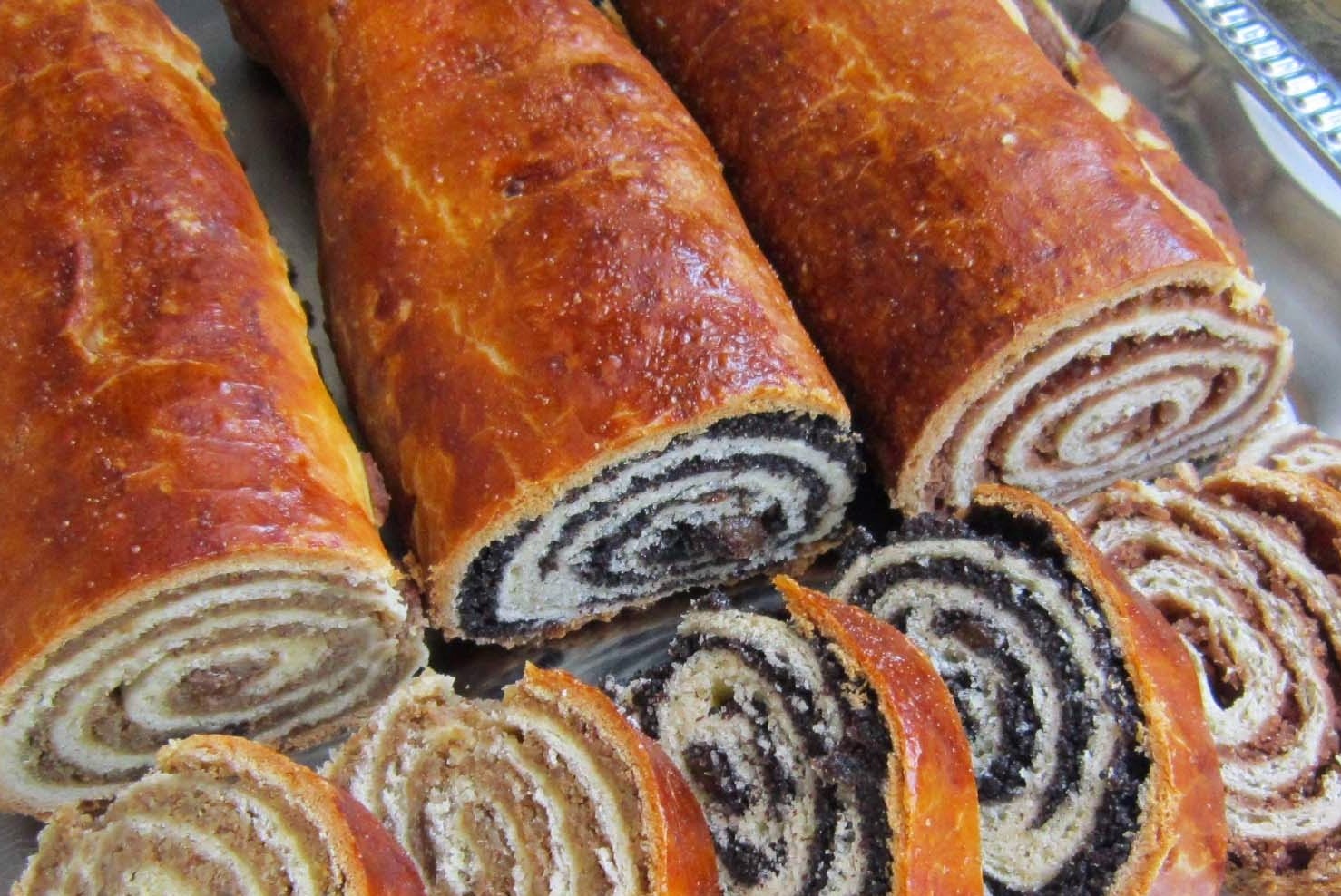Beigli – The Hungarian Christmas cake

Citizens, Beigli (sometimes spelled Bejgli) is a delicious Hungarian Christmas treat. This pastry is ubiquitous around Christmastime, you can buy it in practically any shop or bakery.
Both walnut (diós) and poppy seed (mákos) bejgli are traditional. In Hungarian cuisine the rolls, one with each filling, are traditionally served together. The combination is known as mákos és diós (poppy seed and walnut).
As noted from the excellent website globalgourmet.com:
Makosh (Mákos Beigli) is a cake-like yeast roll with a poppy seed filling.
Origin: Central Europe
Other names: Germany: mohn kuchen; Hungary: mákos beigli.
Kuchen rolls are very popular in central and eastern Europe; they probably originated as a means of transforming some extra bread dough into a special treat for the family. The yeast dough was rolled into a thin rectangle, spread with a sweet filling, and rolled into a cylinder jelly-roll style.
The original cake rolls were commonly filled with the most popular medieval central European spice, poppy seeds (mohn in German and mák in Hungarian), and the name of the rolls became simply makosh in Hungary. Hungarians also made a filling from ground walnuts (diós).
Poles and Germans generally spread the dough with a thicker layer of filling and let the shaped roll rise to produce thicker cake layers. Hungarians tended to roll out the dough very thin and to not allow it to rise, instead rushing it directly into the oven; the resulting pastry had very thin cake layers alternating with thin layers of filling, akin to the layers in a yeast strudel.

Photo Credit : http://recipeler.com/
In the early American cookbook Aunt Babette’s (Cincinnati, 1889), the German Jewish author included a recipe for “Mohn Kuchen (Poppy Seed).” The first edition of The Settlement Cook Book (Milwaukee, 1901), also by a German Jewish author, included a recipe for “Poppy Seed Roll or Mohn Kuchen.” This pastry is still one of the favorite desserts of Hungarian Jews.
Although central and eastern European Jews have a long tradition of yeast cake rolls, including the Polish babka, none embraced them as enthusiastically as the Hungarians.
Many Hungarians serve makosh, kakosh, diós beigli (walnut roll), or one or more of the other variations on every Sabbath and at life-cycle events.
In the late twentieth century, some Hungarian Jewish commercial bakeries in America began introducing these rolls to the wider public and chocolate and poppy seed rolls became commonplace at American gourmet shops. From a land renowned for its pastry, makosh and kakosh rank with the best of Hungarian specialties.
Most families in Hungary have their own Beigli recipe
Source: https://www.thefooddictator.com/hirshon-hungarian-poppy-seed-walnut-beigli-makos-es-dios-bejgli/





